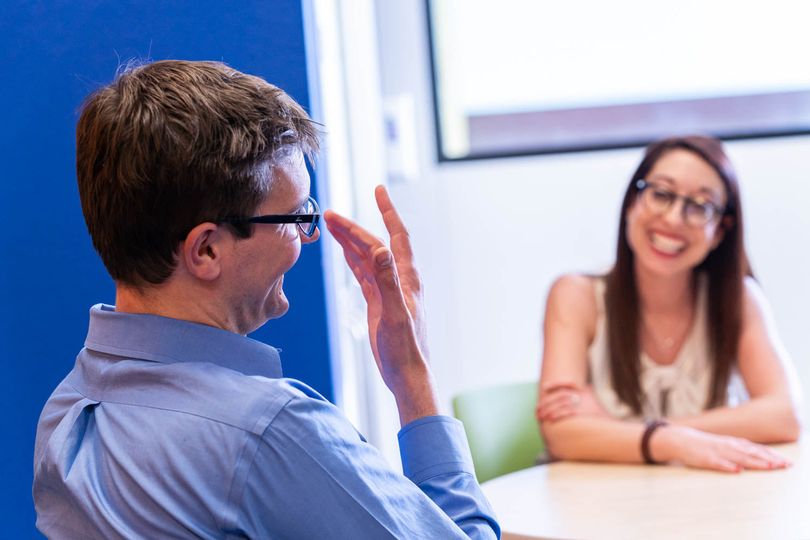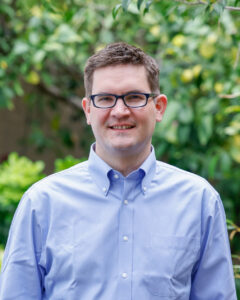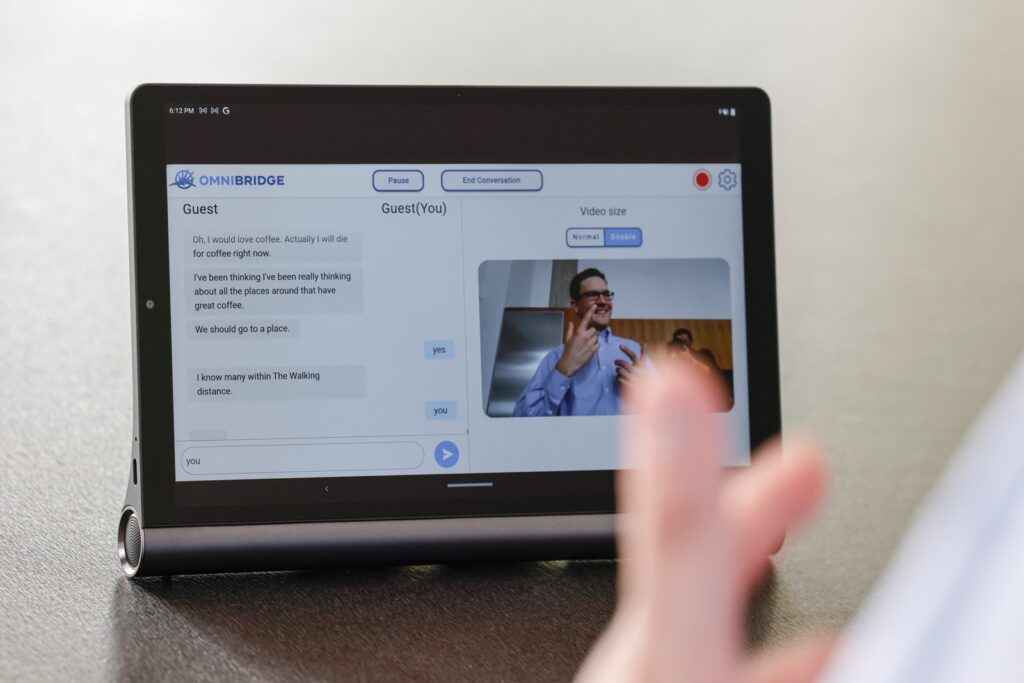
Language was the big hurdle on my first day at Intel. I remember it very well — Monday October 12, a week after new employee orientation week. Two weeks before that — before I started work — I moved from the Northeast to the greater Phoenix area.
I met with a coordinator of an interpreting agency and several newly hired interpreters to discuss a variety of things. I shared my passion for advanced fabrication at a nanoscale level with a few interpreters who were potential hires. I taught them some basic lithography concepts. This was something I studied for years in undergrad and graduate school, and I knew it very well. I love this topic and am most fascinated by nano lithography. Google it if you want more information.
I was very darn proud of my interpreting “dream team”. But the day I started at Intel was not what I expected. The newly hired top interpreters and I followed my first boss as he hurried down a long, wide aisle that opened between hundreds of boxes the size of bedrooms. Inside these boxes giant robots danced and made strange noises as we watched them through polymer windows in the monstrous clean room. The robots slated, gripped and delivered processing wafers with their multiple arms, just like clowns juggling balls. The interpreters and I marched ahead, like astronauts before a launch to the moon, towards 20 engineers standing in a circle and gowned in pure white from head to toe, except for an eye opening. They turned to look at us, broke up the huddle and welcomed us in.
“Sorry” said my boss in a strong Irish accent (according to the interpreters). One of the two interpreters relayed the meeting dialogue and the other interpreter stood ready to support her. Teamwork! But after the very first sentence the interpreter translated for me, I simply stared at her. “Huh?” The interpreter paused, stumbled and signed in a “mumbled” way. It wasn’t a language I knew or had seen before. The meeting continued, and the engineers interrupted and talked over each other for 20 long minutes. The interpreters had no idea which conversation they should interpret. The big picture was lost for me!
How could I handle this for the next few months? After the meeting my boss assigned me a “buddy” who graduated from the same school I did, Rochester Institute of Technology. He was familiar with being surrounded by 1,200 deaf students. He showed up in my office cubicle and sat on one side of the large L-shaped desk and asked me if I had any questions. YES! I asked him to explain all the abbreviations used in the meeting that the interpreters had relayed to me. He chuckled as we went through my list.
We realized the interpreters couldn’t understand the abbreviations because many of the engineers had heavy foreign accents, plus there was high frequency background noise from the robots that made hearing the spoken words difficult. Also, Intel has its own specialized technical language that didn’t make sense in spoken English or American Sign Language. Day after day the interpreters and I developed some pretty creative strategies to deal with this unique situation. I copy them on my work emails, so they have a heads up on what’s going on. Today we have two interpreters on the site. One of them voices for me and the other focuses on interpreting spoken language. They rotate every 20 minutes. They write down words they aren’t familiar with and I explain the scientific concepts to them, but often that isn’t enough. Intel has its own language we continue to learn together. I work with the interpreters and we create a series of notes to pass down to new interpreters rotating into my schedule.
I am so grateful to Intel for hiring my interpreters and for the interpreter’s patience with my frustration and their willingness to work along with me. We’ve all faced many challenges and have learned to work together over time.

Adam Munder is Deaf and has worked at Intel in many engineering roles since 2011. Prior to incubating a new venture backed by Intel Corporation, he started simply, with a big stack of borrowed textbooks and internet information. Coming from an all-engineering background, he is sure to bring a new technology focus to innovation at a time when it is needed most.
